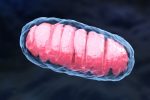CMT2D Mutation Halts Early Steps of Protein Production

Mutations in the GARS gene — found in people with Charcot-Marie-Tooth disease type 2D (CMT2D) — halt the first steps of protein production, new research shows.
Specifically, the mutations cause ribosomes — the factories where proteins are assembled — to stall protein production. Therapies that can overcome this ribosome-pausing problem may be beneficial to patients with CMT.
The study, “Charcot–Marie–Tooth mutation in glycyl-tRNA synthetase stalls ribosomes in a pre-accommodation state and activates integrated stress response,” was published in the journal Nucleic Acids Research.
CMT is caused by inheritance of mutations that affect the function of peripheral nerves, which are those found outside the brain and spinal cord and responsible for the control of movement and sensory functions.
One group of genes that has been implicated in CMT carry instructions for aminoacyl-tRNA synthetases (aaRSs), a special class of enzymes with a critical role in protein production.
The information for protein production is encoded in the genome. As a first step, this information is converted into a messenger RNA, which is then translated into a protein.
Proteins are assembled in a sort of factory, called the ribosome, and aaRSs mediate the attachment of transfer RNA (tRNA) to amino acids, the building blocks of proteins, which is a key early step in protein production called aminoacylation. This ensures the link beween different amino acids to form a protein chain.
However, previous research showed that mutations in aaRS-coding genes do not disrupt aminoacylation, but lead to a halt in protein production via an unknown mechanism
“We have known for some time that mutations in genes encoding enzymes called aminoacyl-tRNA synthetases (aaRSs) can cause CMT,” Marina Chekulaeva, PhD, said in a press release. Chekulaeva is a researcher at the Berlin Institute for Medical Systems Biology, part of the Max Delbrück Center for Molecular Medicine in the Helmholtz Association, and the study’s senior author.
To understand the mechanism halting protein production, Chekulaeva and her team looked closely at how these mutations affected the “reading” of information from the messenger RNA to protein (a process called translation).
Specifically, they focused on the GARS gene, which encodes an enzyme called glycyl t-RNA synthetase that is altered in people with CMT2D
Using a technique called ribosome profiling that provides a snapshot of ribosome activity at a given time, the researchers discovered the CMT2D-causing mutations led to a shortage of the glycyl-tRNA in cells, which is key in the second step of protein production called elongation.
“This causes ribosomes to stall their protein production at the sites where the amino acid glycine is to be added to the growing protein chain,” said Samantha Mendonsa, a doctoral student in Chekulaeva’s lab and the study’s first author.
The scientists also found this failure in glycine addition induced a stress response that further promoted a stall in protein production, this time by impairing the process at its first step (initiation).
“Thus, CMT-GARS mutant triggers translational repression via two interconnected mechanisms, affecting both elongation and initiation of translation,” the investigators wrote.
These findings may help design new therapeutic strategies for CMT.
“One possibility would be the administration of tRNA to overcome its shortage in the nerve cells, thus alleviating ribosome pausing,” said Chekulaeva. “Another approach could be to use relevant therapeutic agents to suppress the integrated stress response.”
Therapeutic targeting of the integrated stress response has been shown to lessen symptoms in mouse models of neurodegeneration, supporting this strategy’s potential for CMT, the researchers wrote.
Chekulaeva and her team now will try to understand how stalling protein production in the ribosome affects the function of peripheral nerves.
“Our team is now interested, for example, in the still unanswered question of how and why ribosome pausing impairs the function of the motor and sensory nerve fibers that connect the brain and lower limbs,” said Chekulaeva.







